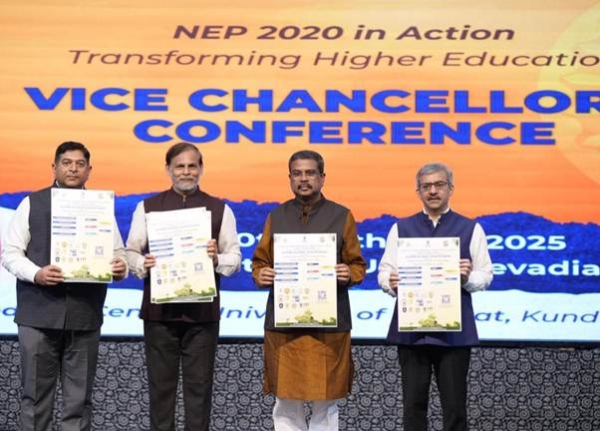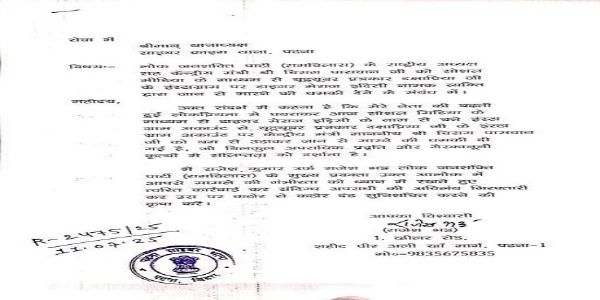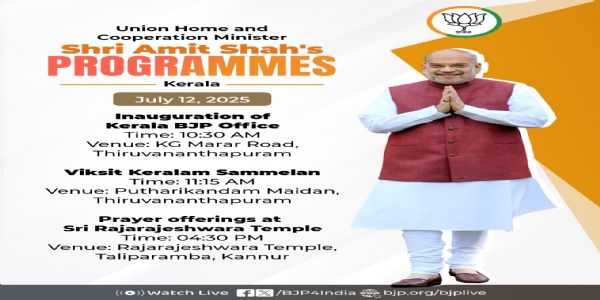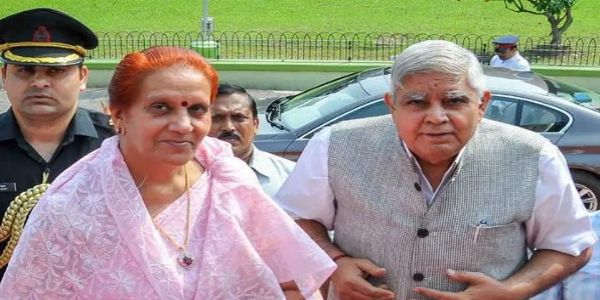
Delhi, 11 July (H.S.): The Ministry of Education convened a Vice Chancellors Conference of Central Universities in Kevadia, Gujarat, on July 10-11, 2025. Key attendees included Union Education Minister Dharmendra Pradhan, Minister of State for Education Dr. Sukanta Majumdar, and various Vice Chancellors (VCs) from Central Universities.
Dr. Majumdar emphasized Sardar Patel's belief in unity, discipline, and education as the foundation of the National Education Policy (NEP) 2020, which aims to enhance India's global competitiveness while upholding Indian values. He highlighted significant growth in women's participation in higher education, with female enrollment rising from 1.57 crore in 2014-15 to 2.07 crore in 2021-22—a 32% increase.
The minister noted the rapid integration of technology in education through platforms like SWAYAM, allowing universities to issue around 9 lakh certificates annually and enabling up to 40% of academic credits to be obtained through online courses. He also mentioned the multilingual approach of NEP 2020, as national exams like JEE, NEET, and CUET are being conducted in 13 regional languages.
The conference highlighted India's best-ever performance in the QS World University Rankings 2026, with 54 institutions ranked, a fivefold increase since 2015. The Academic Bank of Credits (ABC), vital for student-centric learning, boasted over 2.75 crore registered students across 1,667 higher education institutions, many being Central Universities. Dr. Majumdar described the NEP 2020 as a renaissance that empowers learners to think globally while remaining rooted in India's cultural ethos. He urged VCs to accelerate NEP implementation, strengthen research ecosystems, promote collaboration with industries, and champion both equity and excellence.
Secretary (Higher Education) Dr. Vineet Joshi summarized key conference takeaways, advocating for immediate and thoughtful institutional implementation of the National Higher Education Qualification Framework (NHEQF) and the National Credit Framework (NCrF). He stressed the importance of aligning curricula with real-world skills, advocating for blended learning, credit transfer, and digital inclusion in the academic framework. He called for agile governance driven by data and citizen engagement, highlighting tools like SAMARTH for transformation. Inclusivity in higher education was emphasized as a measurable goal across all facets, from admissions to faculty diversity.
Dr. Joshi affirmed the academic strength of the Indian Knowledge System (IKS) and Bharatiya Bhashas, advocating for their meaningful integration in universities through strategic planning and active cultural participation. He encouraged enriching libraries and establishing knowledge clubs and language labs. The conference concluded with a decision for Central Universities to draft strategy papers to inform future discussions and strategize for Viksit Bharat 2047, incorporating themes like multidisciplinary integration, the mainstreaming of IKS, technology-driven education, and campus innovation.
Discussions among VCs targeted the core pillars of NEP 2020—access, equity, quality, affordability, and accountability—through the lens of governance, academic innovation, digital learning, research, and global engagement, drawing from personal experiences in implementing NEP 2020 reforms.
The first day's sessions focused on structural and academic reforms under NEP 2020, including the flexible and multidisciplinary education model associated with the Four-Year Undergraduate Programme (FYUP) and aligning curricula with technological advancements to remain industry relevant. Digital education initiatives such as SWAYAM and APAAR were highlighted for their importance in providing flexible learning pathways. The SAMARTH e-governance system sessions emphasized digital integration for university operations and transparency, while discussions on equity aimed to alleviate socio-cultural disparities. The integration of indigenous languages and knowledge systems into higher education was also a focal point.
The second day focused on innovation, quality assurance, global engagement, and capacity building, crucial for realizing NEP 2020’s vision of transforming India into a knowledge superpower by 2047. Topics included enhancing research ecosystems through initiatives like the Anusandhan National Research Foundation (ANRF) and improving accreditation frameworks for institutional quality and transparency. The internationalization of education and faculty development were addressed to support long-term educational goals.
The event gathered diverse institutional representations, including prestigious universities such as Delhi University, JNU, and Banaras Hindu University, showcasing India's rich education landscape. The conference commenced with a yoga session on July 10, promoting well-being and aligning with NEP 2020's holistic educational approach.
---------------
Hindusthan Samachar / Jun Sarkar








